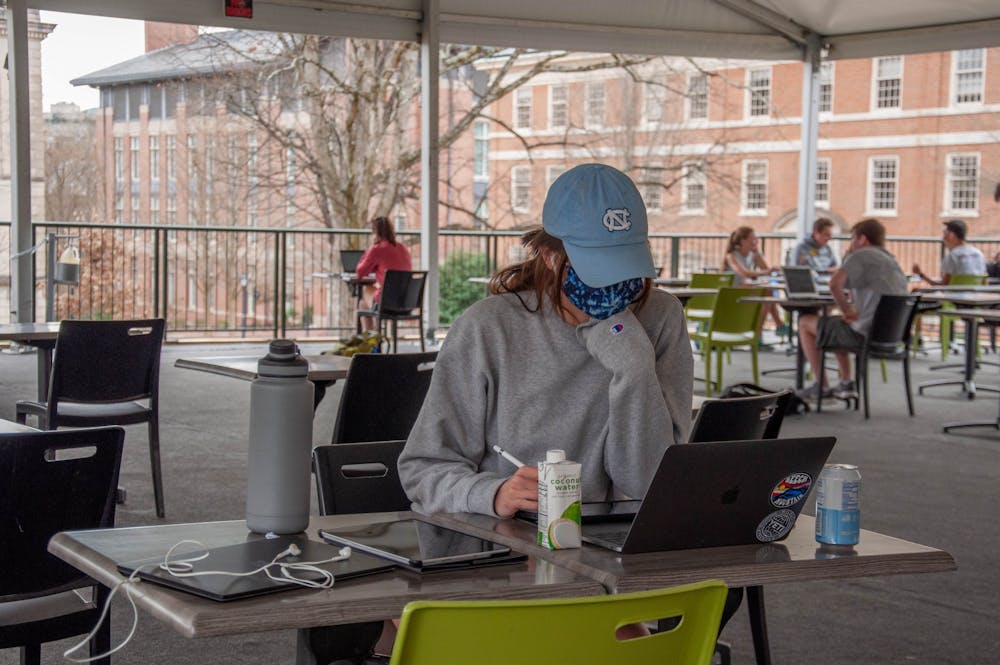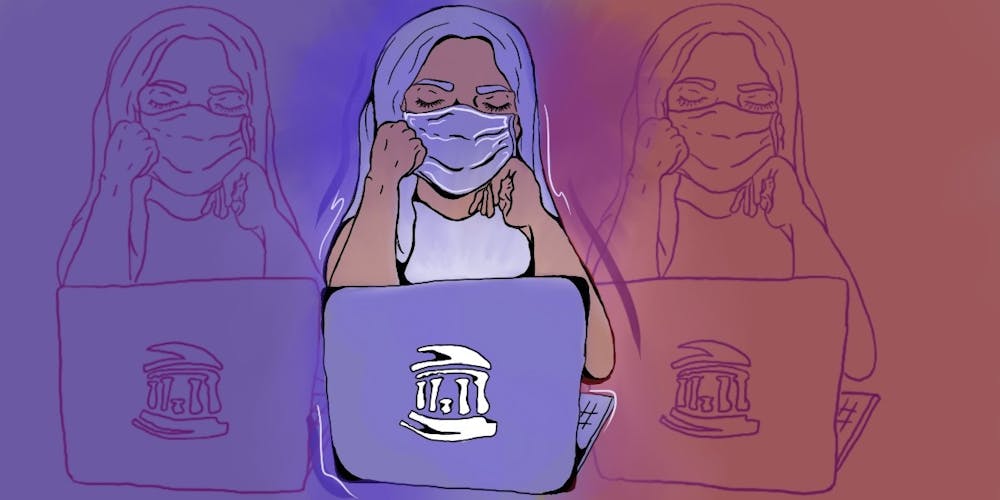Mental health has long been an issue on college campuses. One in four college students has a diagnosable mental health condition, a trend that has only worsened in recent years.
The COVID-19 pandemic has only exacerbated the college mental health crisis. Undergraduate students are screening for depression and anxiety at higher rates, and data show suicidal ideation has increased dramatically among college-aged adults as a result of the pandemic.
However, one group in particular has been hit hard by the pandemic: first-year college students.
Since the pandemic began, anxiety and depression have become significantly more prevalent among first-year students at UNC, according to a study published earlier this month in the journal PLOS ONE.
The study, led by Jane Cooley Fruehwirth, an associate professor of economics at UNC, found that the prevalence of moderate to severe anxiety in first-year college students increased 40 percent, while the prevalence of moderate to severe depression increased by 48 percent.
Perhaps most notably, the study found that difficulties associated with distanced learning and social isolation contributed most substantially to the observed increases in anxiety and depression among first-year students. Just four months into the pandemic, one-quarter of students reported moderate-severe anxiety and nearly one-third reported moderate-severe depression, the study found.
The study also highlights the disproportionate impacts the pandemic has had on students from different backgrounds.
The pandemic’s effects were especially pronounced for Black students, who experienced an 89 percent increase in depression. Hispanic students, first-generation students and sexual and gender minority students experienced the largest difficulties with distance learning, the study found. In addition, social isolation increased significantly for Black and sexual and gender minority students.




